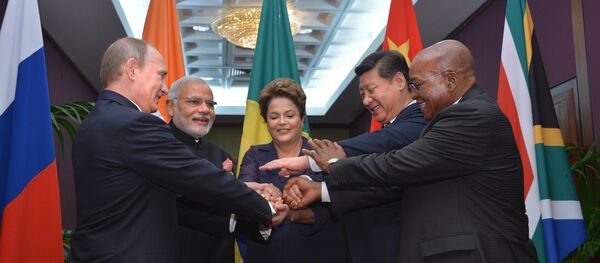US-based global intelligence company Stratfor has recently produced its fifth quinquennial 'Decade Forecast: 2015-2025' report, in which it makes a number of shocking predictions about changes meant to take place over the next ten years, including the collapse of Russia and the European Union, the decline of China, the fragmentation of Middle Eastern nation states, and the continuing reign of the United States as the world's sole superpower.
The agency predicts that as Russia weakens, territories traditionally in the Russian sphere of influence and pieces of Russia itself will break off and join other powers. This includes Belarus and Ukraine being 'brought into the fold' of Poland, Hungary and Romania, while Karelia strives to join Finland, Russian control over the North Caucasus evaporates, Central Asia is destabilized and the Russian Far East seeks to "move independently" toward links to China, Japan and the US.
Stratfor argues that the biggest challenge for the US when it comes to the collapse of Russia revolves around rouge nuclear missiles ending up in the hands of unstable states. The agency notes that the US will be forced "to invent a military solution," or to "try to create a stable and viable government in the regions involved to neutralize the missiles over time."
The intelligence company made similar predictions with regard to Russia in reports published since 1996. The overall tone of the report in regards to the country seems to contradict earlier statements made by George Friedman, Stratfor's founder and CEO. Friedman recently noted in a discussion on the Russian economic decline that "Russians' strength [stems from the fact] that they can endure things that would break other nations." Furthermore, the country "has military and political power that could begin to impinge on Europe."
Along With Russia, United Europe Too Set to Collapse
Mid-East States to Decline, Turkey to Rise, Chinese 'Dictatorship' to Intensify
In the Middle East, Stratfor argues that the continuing destabilization and breakdown of nation-states in the Middle East and northern Africa will be tempered by the rise of Turkey, which is expected to expand its role. As the only state with "the means to at least achieve limited success in the region," Turkey is expected to ally more closely with the US, receiving political and military benefits in exchange for "participation in the containment of Russia." The report argues that as Russian geopolitical power recedes in the northern Black Sea area, Turkey may become involved in "projecting its power northward certainly commercially and politically but also potentially in some measured military way."
It's worth noting that in the agency's 1996-2005 forecast, it expected China to suffer "growing instability, including the strong possibility of fragmentation and civil war."
Ultimately, US to Remain World's Sole Global Superpower
Stratfor predicts that as its global competitors decline and/or fragment, "the United States will continue to be the major economic, political and military power in the world, but will be less engaged than in the past." The report notes that in the coming decade, the US will choose to use its power more selectively, focusing its gaze on North America. With dropping global exports, growing energy independence and following lessons from foreign policy mistakes made earlier, the US role as "first responder" will decline, according to the agency. In an increasingly dangerous and unstable world, Stratfor argues that "the one constant will be the continued and maturing power of the United States."






